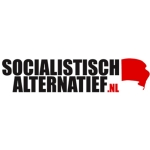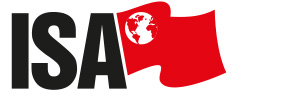Netherlands
Strike Wave Begins


Need for a clear national plan of action and programme
The Netherlands used to be a beacon of social peace, the home of the so-called “polder model”. But not any more. Already before the covid pandemic there was an increase in class struggle. The pandemic caused a certain pause; but now the class struggle is back in full swing.
Last week, there were strikes in about one hundred different locations and 11 sectors. There are or have been layers of workers on strike who are quite organised and have a militant tradition, like the railway workers, where unionisation is high. But workers also went on strike in sectors where this never happened before, like liquor chain, Gall and Gall, and warehouse company, Bijenkorf. Refuse workers only stopped their strike after the bosses offered an average raise of 9% and 240 euro per month raise (16%) for workers on lower wages. This week, regional bus drivers will be on strike again.
The main reason workers are on strike is skyrocketing inflation. The Netherlands has among the highest percentage of inflation in the EU. On average inflation was 10% in 2022 while wages increased only by 3.2%. So workers have no choice but to fight back, or they will end up in dire poverty. In the Netherlands, the percentage of part time workers or workers on flexible contracts is very high. Working conditions and the pressure of work are also a big issue, for example for the bus drivers who hardly have any breaks to go to the toilet or have time to eat.
Many problems have been there for years and years, for example in health care and education. These have been worsened by covid. So more sectors could explode in the coming period.
An important demand of the workers is for wage increases and wage indexation (adaptation of wages to the cost of living). Railway workers who started to strike in September last year won a 10% wage increase, which was not enough but still a partial victory, (in general the union leadership didn’t ask for more than 5%). There was also a wildcat strike of baggage handlers at Schiphol, because of low wages and bad working conditions, which caused a big chaos in the airport.
The government stepped in with some concessions in response to the cost of living crisis, like subsidies on energy costs. In November and December 2022, every family received 190 euro a month in compensation for sky-high energy prices with the promise that more would be on its way in 2023. Also, the government agreed to increase the minimum wage step by step to 14 euro an hour.
But this didn’t fool the workers. The main union federation, FNV, is being forced to fight back under pressure from its members. Many companies are still making big profits. Total gross profits in the last quarter of 2022 were 84.5 billion euro, a record since records began in 1999! At the same time more and more working class families can’t afford hot meals anymore... So union delegations are demanding wage increases between 10 and 20%. FNV also runs a national campaign: “the Netherlands deserve better” which is unfortunately still quite weak. It’s still fighting mainly “sector by sector” instead of through one well-coordinated, democratically decided action plan bringing all workers together in struggle.
A clear action program is necessary, which should include demands for:
- Full automatic indexation of the wages
- A 15 euro an hour minimum wage, also for young people
- No more flexi jobs, a steady contract for everyone
The union leadership rightfully says that workers, pensioners and the unemployed have lost 60 billion because of inflation and should get it back. They say we should take it from the rich and big companies. We agree with that, but also warn that the rich can blackmail us by threatening to move abroad with their means of production. In that case we should not hesitate to nationalize them and take them into public ownership! This would lay the basis to start to democratically plan the economy to provide based on the needs of the workers and the planet.




